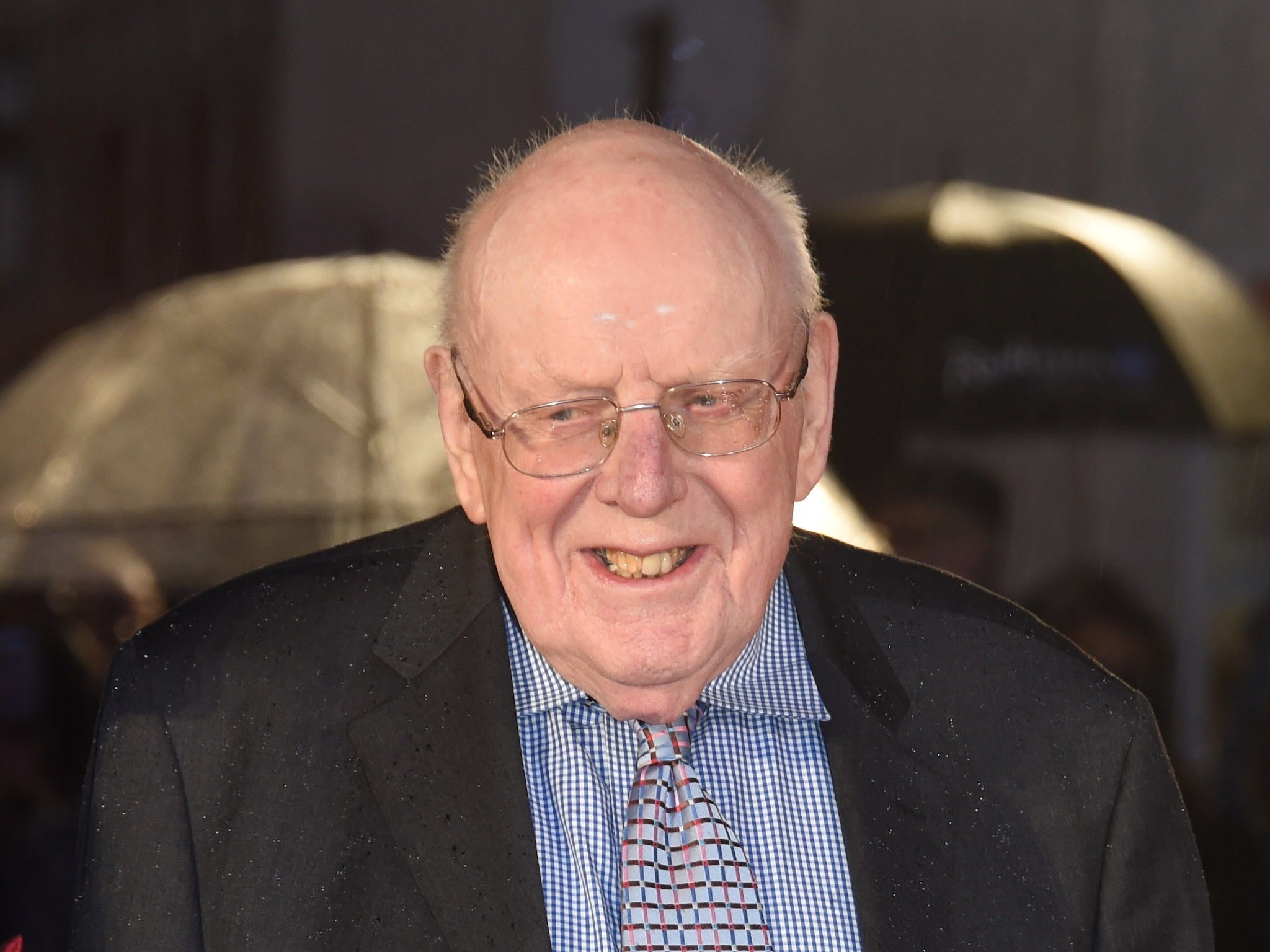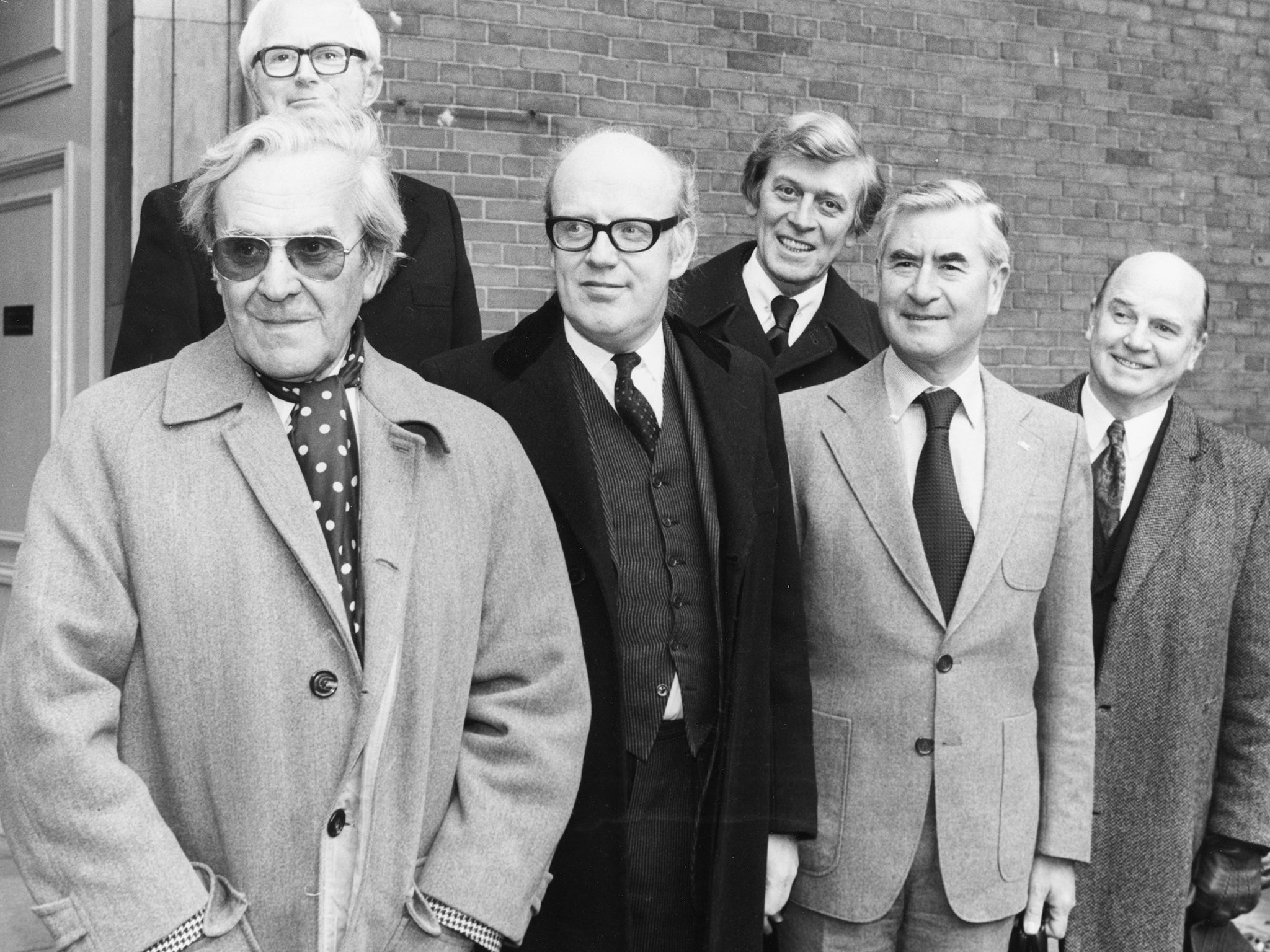Frank Williams: Actor who played the dithering vicar in Dad’s Army
The character actor often found himself typecast in religious roles and was himself a lifelong Christian

Frank Williams, who has died aged 90, was a character actor who found lasting fame as Timothy Farthing, the dithering, ineffectual vicar in the classic TV sitcom Dad’s Army.
His sulky character was seen navigating a course between the fictional Walmington-on-Sea’s Home Guard, defending England’s south coast during the Second World War – with the pompous Captain Mainwaring (played by Arthur Lowe) commandeering the church hall and vicar’s office, to his disgruntlement – and the uncouth chief air raid warden Hodges (Bill Pertwee), forever crying: “Put that light out!”
In his brushes with Mainwaring’s bumbling platoon in the sitcom written by Jimmy Perry and David Croft, he was usually accompanied by St Aldhelm’s Church’s fawning verger, Mr Yeatman (Edward Sinclair), who referred to him as “your reverence”.
Typical of the vicar’s exchanges with Mainwaring was when the commanding officer returned to find that his deputy, Sergeant Wilson (John Le Mesurier), had taken on the Reverend Farthing as a Home Guard recruit.
“Could I stand idly by and watch my wife being ravished by a German soldier?” explained the vicar. “No, I told myself.” Mainwaring replied: “But you’re not married.” Back came Farthing’s response: “I have a very vivid imagination.”
The vicar walked out on the platoon before the end of the episode, but Williams stayed on in the role until the sitcom ended in 1977, having joined in 1969 at the start of the third series. He appeared in half of the 80 episodes and all three radio series (1973-76), as well as the 1971 film spin-off and a Dad’s Army stage show in the West End, then on tour (1975-77).
He was the only original cast member to reprise his character in the 2016 Dad’s Army film reboot, although Ian Lavender (Private Pike in the original) appeared as a brigadier.
Having previously acted at the Palace Theatre, Watford, when Perry ran the rep company there, Williams was his first choice to play Dad’s Army’s man of the cloth.
He also wrote plays for the Palace theatre, starting in 1961 with a religious drama, The Substitute – the story of the crucifixion performed in modern dress – although Perry expected to make no money from it.
“I couldn’t have been more wrong!” he told Richard Webber, author of The Complete A-Z of Dad’s Army. “Religious coach parties came from near and far. For six nights the theatre was packed to the rafters. We took £1,000, a totally unheard of sum at that time.”
Williams, a lifelong Christian, handed his profit over to the church. From 1985, he served as a lay member of the Church of England’s General Synod. Seven years later, he voted against the ordination of women priests, but he continued on the synod until 2000 at the end of three terms.

The actor’s Dad’s Army role also typecast him on screen. He took roles as vicars in the 1978 film What’s Up Nurse! and a 1984 episode of the Salvation Army TV sitcom Hallelujah!, starring Thora Hird, as well as an archdeacon in a 1987 BBC adaptation of Vanity Fair.
Perry and Croft cast him again as a vicar for the wedding of Gladys Pugh to Clive Dempster in Hi-de-Hi! (1988) and Charles, the bishop frequently visiting Lord Meldrum’s stately home, throughout You Rang, M’Lord (1990-93).
Frank John Williams was born in Edgware, Middlesex, in 1931, the only child of Alice (née Myles) and William Williams, a draper, and brought up as a Presbyterian, although in the 1960s he became an Anglo-Catholic.
He attended Ardingly College, West Sussex, then Hendon County School, where in his final year he starred in its production of The Ghost Train, written by his future Dad’s Army fellow actor Arnold Ridley, who played Private Godfrey.
His father then paid the small Gateway Theatre, Notting Hill, £30 to take him on as an assistant stage manager, paid back to him as a wage of £2 a week over 15 weeks. He then landed a full-time job there.
As a writer, No Traveller, about a man suffering from amnesia, was Williams’s first play to be performed in 1952.
After almost a decade of taking small parts in films, he made his first impression on screen in the ITV sitcom The Army Game. Following three episodes as a psychiatrist, Major Fossett (in 1957 and 1959), he returned as a regular character, Captain TR Pocket (1959-60), assuming command of the National Service conscripts at the Nether Hopping Surplus Ordnance Depot.
At the same time, Williams was in an army setting to play a stooge to comedian Norman Wisdom in the films The Square Peg (1958) and The Bulldog Breed (1960).
He was also in demand as a TV character actor in both comedies and dramas. He was a regular in different roles alongside Harry Worth in Here’s Harry (in 1963 and 1964), The Worker (in 1965) and Harry Worth (in 1966 and 1967), as well as Hugh Lloyd in Hugh and I (between 1962 and 1965) and The Gnomes of Dulwich (1969).
His own plays included thrillers such as Murder by Appointment (1985) and Murder Weekend (1993), which have been performed by regional theatre companies. The first was turned into a short film in 2009.
The actor’s autobiography, Vicar To Dad’s Army: The Frank Williams Story, was published in 2002.
His eyesight was impaired through macular degeneration in later years, when he earned more from Dad’s Army repeat fees than he had from the original screenings. This was partly thanks to a good deal struck with the BBC by Equity when he was on the council of the actors’ union for several years, including a period as chair from 1998.
Williams lived with the actor Ronnie Grainge, a member of the Dad’s Army stage show cast, who survives him.
Frank Williams, actor, born 2 July 1931, died 26 June 2022

